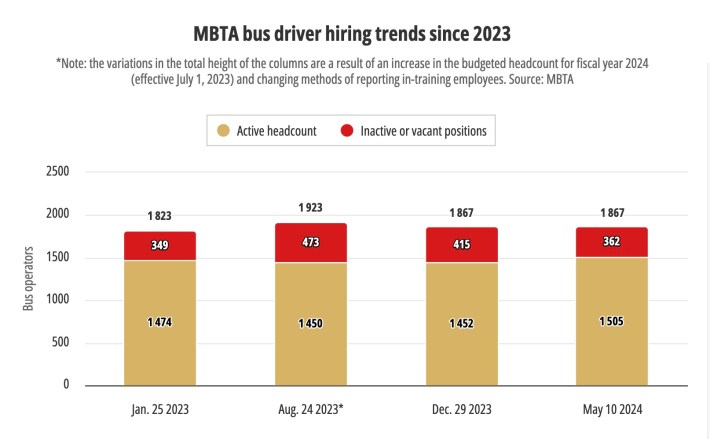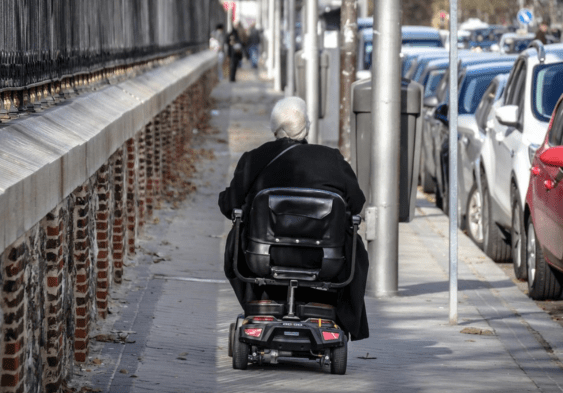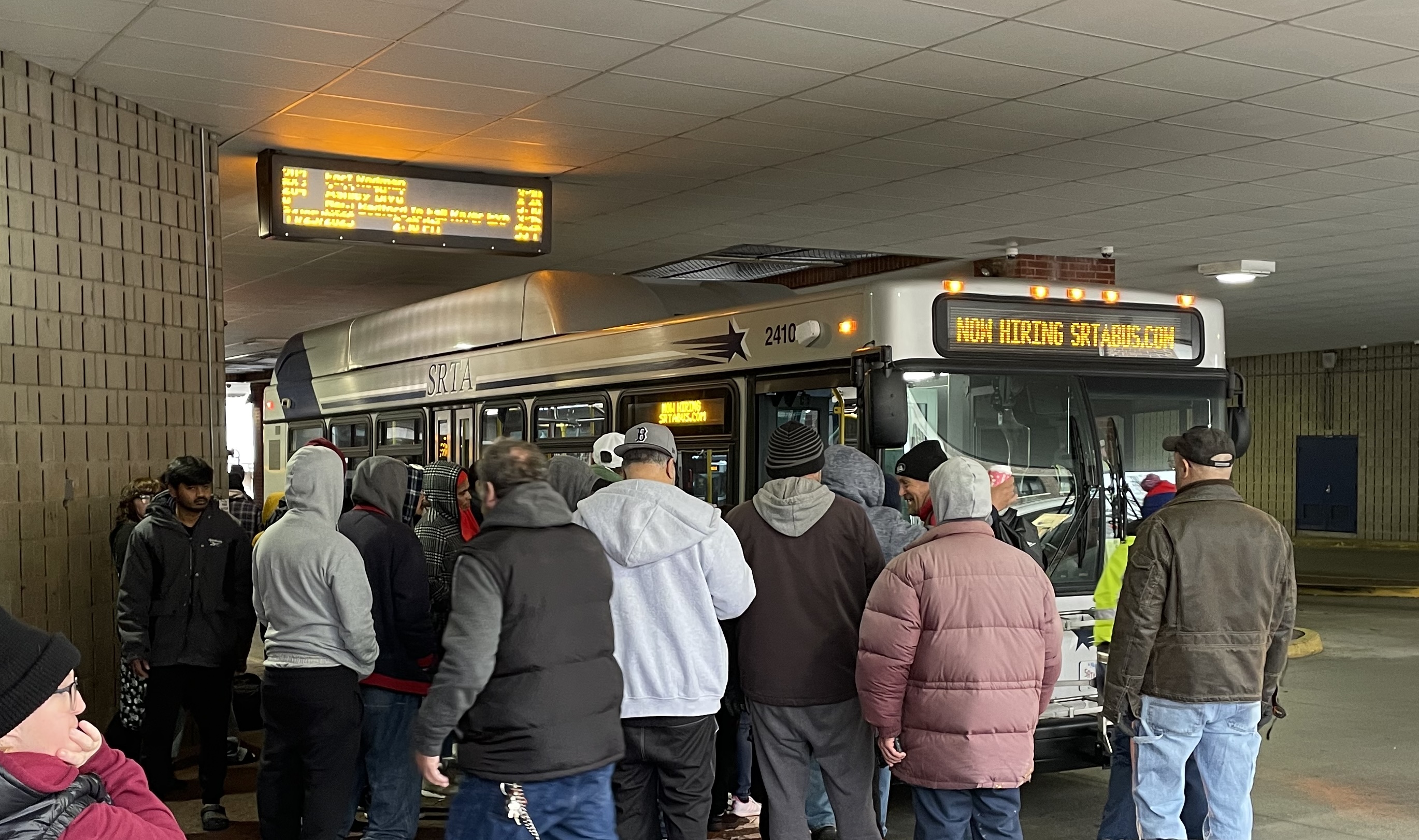For the first time in years, the MBTA is growing its depleted workforce of bus operators, thanks to a more generous labor contract and expanded training programs.

This spring, the MBTA has over 1,500 active bus drivers in its workforce, and 53 more drivers than it had at the beginning of the year.
According to a slide deck from the MBTA's May 9 Workforce Planning, Workforce, Development & Compensation Subcommittee meeting, the agency has hired 344 new bus operators so far in fiscal year 2024 (which began on July 1, 2023), compared to 191 bus operator hires in fiscal year 2023 and 210 hires in fiscal year 2022.
Expanded training programs are finally catching up with pandemic attrition
The T still needs to hire and train hundreds new drivers to make up for all of the drivers who had quit or retired during the Covid-19 pandemic.
The T also needs to cover for drivers who are taking more time off under the state's updated Paid Family and Medical Leave law, which took effect in 2021. As of last week, 127 bus drivers on the T's payroll were out on leave.
Last summer, acknowledging its severe shortage of bus operators, the T made significant cuts to scheduled bus service to reflect its reduced labor force.
A few weeks later, the MBTA board of directors authorized a more competitive labor contract with the Boston Carmen's Union Local 589 that included a $30 per hour starting wage for bus drivers – about $8 more than the previous wage for entry-level drivers.
That new contract led to a surge in new job applications for the T. But until earlier this year, the agency was still struggling with bottlenecks in its training programs that limited how many applicants could actually get into the driver's seat.
A year ago, in 2023, the T was running training courses for bus operators every 12 weeks, with 20 to 30 trainees per class.
When we last reported on the T's bus operator workforce in January, the number of active bus operators had barely budged in the six months since the new labor contract took effect.
In October 2023, the T increased the cadence of its training courses to induct a new class of trainees every 8 weeks instead of every 12 weeks, and also increased its target class size to 66 people.
Now, the T is targeting 100 trainees per class. 90 new recruits enrolled in the MBTA's January bus operator training course, and 88 more candidates enrolled in the March training class.
MBTA officials say that there were 128 new drivers currently in training as of last week.





